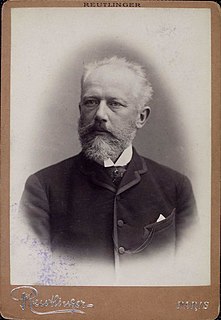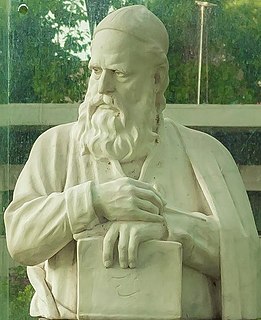A Quote by Paul Brunton
The artist must raise the cup of his vision aloft to the gods in the high hope that they will pour into it the sweet mellow wine of inspiration.
Related Quotes
There is no doubt that even the greatest musical geniuses have sometimes worked without inspiration. This guest (inspiration) does not always respond to the first invitation. We must always work, and a self-respecting artist must not fold his hands on the pretext that he is not in the mood. If we wait for the mood, without endeavouring to meet it half-way, we easily become indolent and apathetic. We must be patient, and believe that inspiration will come to those who can master their disinclination.
The main difference between the art of the actor and all other arts is that every other [non-performing] artist may create whenever he is in the mood of inspiration. But the artist of the stage must be the master of his own inspiration, and must know how to call it forth at the hour announced on the posters of the theatre. This is the chief secret of our art.
the true art of the gods is the comic. The comic is a condescension of the divine to the world of man; it is the sublime vision, which cannot be studied, but must ever be celestially granted. In the comic the gods see their own being reflected as in a mirror, and while the tragic poet is bound by strict laws, they will allow the comic artist a freedom as unlimited as their own.
How much more of the mosque, of prayer and fasting?
Better go drunk and begging round the taverns.
Khayyam, drink wine, for soon this clay of yours
Will make a cup, bowl, one day a jar.
When once you hear the roses are in bloom,
Then is the time, my love, to pour the wine;
Houris and palaces and Heaven and Hell-
These are but fairy-tales, forget them all.
Nothing feebler than a man does the earth raise up, of all the things which breathe and move on the earth, for he believes that he will never suffer evil in the future, as long as the gods give him success and he flourishes in his strength; but when the blessed gods bring sorrows too to pass, even these he bears, against his will, with steadfast spirit, for the thoughts of earthly men are like the day which the father of gods and men brings upon them.
The artist seeks contact with his intuitive sense of the gods, but in order to create his work, he cannot stay in this seductive and incorporeal realm. He must return to the material world in order to do his work. It's the artist's responsibility to balance mystical communication and the labor of creation.
Sweet is the rose, but grows upon a brere;
Sweet is the juniper, but sharp his bough;
Sweet is the eglantine, but stiketh nere;
Sweet is the firbloome, but its braunches rough;
Sweet is the cypress, but its rynd is tough;
Sweet is the nut, but bitter is his pill;
Sweet is the broome-flowre, but yet sowre enough;
And sweet is moly, but his root is ill.
Are we lost, or are we found at last? On earth we strive for our various needs, because so goes the fundamental law of man. Aloft, at least for a little while, the needs disappear. Likewise the striving. In the thoughts of man aloft, food and evil become mixed and sometimes reversed. This is the open door to wisdom. Aloft, the earth is ancient and man is young, regardless of his numbers, for there, aloft he may reaffirm his suspicions that he may not be so very much. This is the gateway to humility.







































